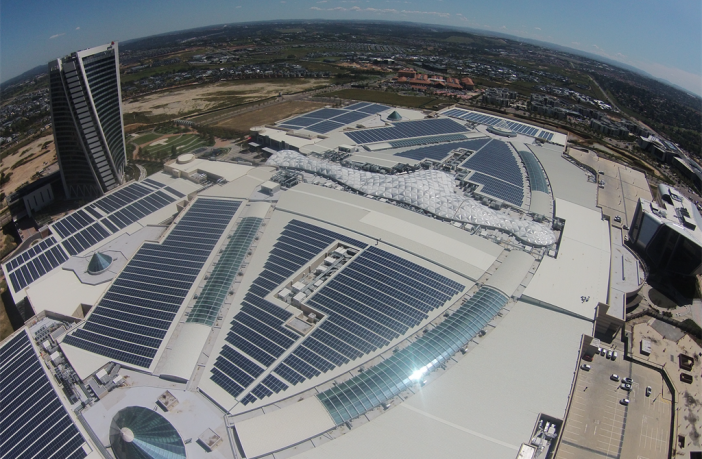- The report finds that pure economics is driving the commercial and industrial Solar Pv market in Africa.
- High tariffs, energy deficit and crumbling infrastructure are key factors.
- The financial sector has yet to take on a major role in providing funding for the two sectors.
A combination of high electricity tariffs, falling solar PV prices and a lack of reliability on the grid is spurring sales of on-site solar to business customers in sub-Saharan Africa. This is the conclusion of a new report by research company BloombergNEF (BNEF), commissioned by responsAbility Investments, assessing the potential of commercial and industrial solar opportunities in the region.
The report, Solar for Businesses in sub-Saharan Africa, finds that the commercial and industrial (C&I) solar sector in sub-Saharan Africa is growing not because of regulatory support – as has been the case in many developed economies – but because of economics.
On-site solar power is cheaper than the electricity tariffs paid by commercial or industrial clients in 7 out of 15 markets in sub-Saharan Africa studied by BNEF. “While the market is still small, it has great potential,” explained co-author Takehiro Kawahara, lead frontier power analyst at BNEF.
Kawahara added: “An immense energy deficit and crumbling infrastructure makes sub-Saharan Africa fertile ground for solar. As of November 2018, developers built a record number of 74MW serving business customers directly, offering them cheaper power than the grid. Kenya, Nigeria, and Ghana installed 15MW, 20MW, and 7MW respectively as of November 2018.”
According to the authors, the financial sector has yet to take on a major role in providing funding for C&I solar systems. So far, most business customers have bought systems for cash, without using third-party finance. There are, however, big opportunities for specialised financiers in the region to do more.
The company expects solar to be increasingly deployed on commercial and Industrial sites, where it often complements diesel power generation.
Antoine Prédour, head of energy debt at responsAbility, underlined: “Electricity outages are commonplace across most of sub-Saharan Africa. When the grid is out, customers must either shoulder high opportunity costs from lost sales or manufacturing output, or resort to much costlier backup power, usually from diesel. This is where financing solar installations can contribute to climate change mitigation by replacing fossil fuel.”
Download full report here.
Author: GBA News Desk/ESI-Africa Contributor
This article was originally published on ESI Africa and is republished with permission with minor editorial changes.















